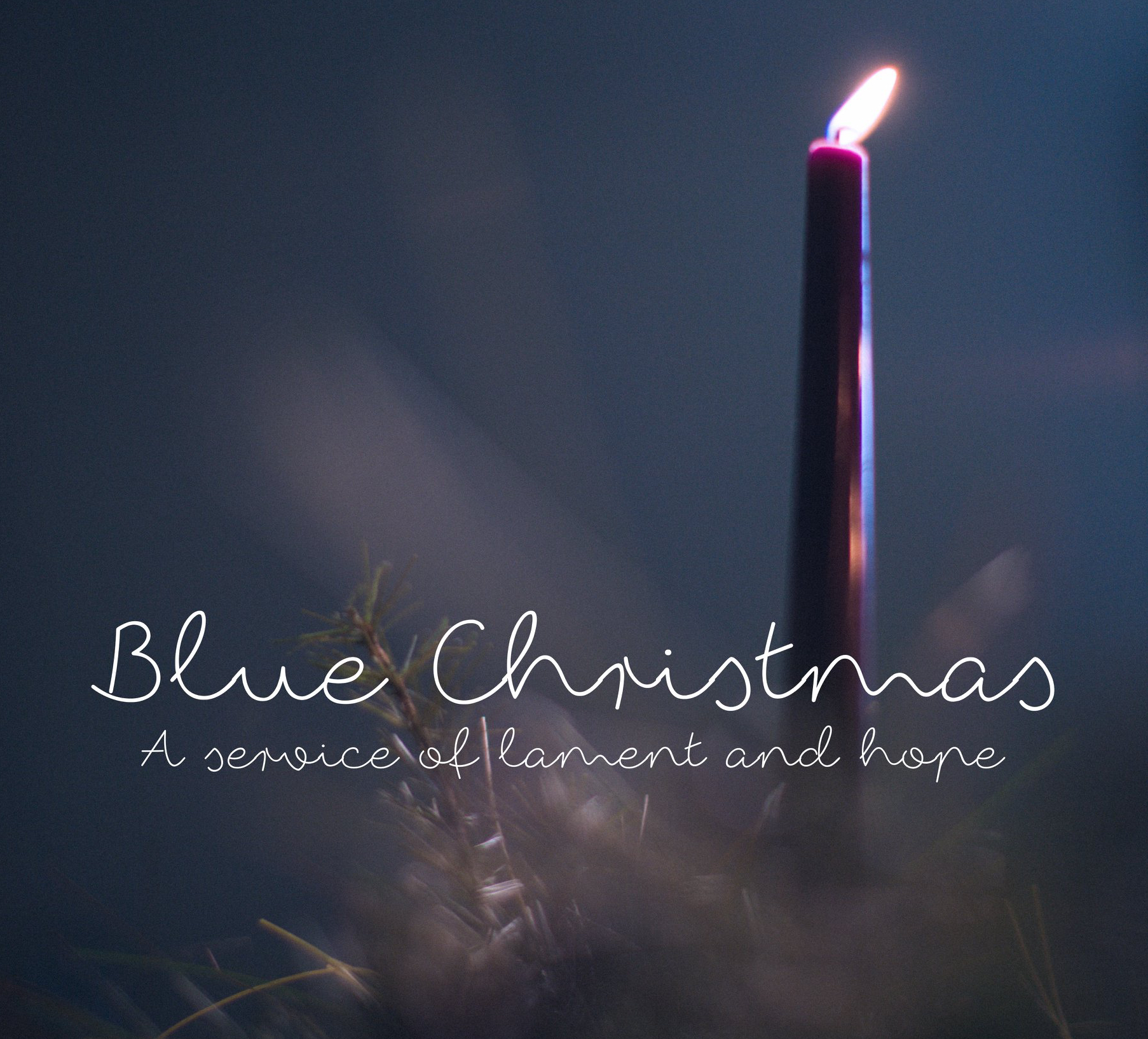We held a Blue Christmas service at my church last night. This is a tradition I have found helpful over the last few years, attending a couple of similar services, although this was the first time I have been involved in leading one. Blue Christmas is about naming the fact that for many people, the joy, celebration, and expectation of this time of year is often tinged with sadness. It is an opportunity to take time to sit in the darkness, to bring before God our sadnesses and sorrows, to recognise that there are often no easy answers or quick fixes, but to seek hope in the midst of wherever we find ourselves.
I’ve learned from the psalmists that we need time and space to be honest and vulnerable before God and his people. The lament psalms give us permission to be brutally honest; to name our sadness, doubt, confusion, or even anger in prayer.

We met last night, on what for most of the world is the longest night of the year, the night of greatest darkness, which comes just a few days before we remember the dawning of hope in the birth of Jesus. Of course, living in the southern hemisphere, it is not physically for us the longest night but one of the shortest, but that doesn’t mean many of us don’t feel like we are experiencing dark or long nights, and so we joined with sisters and brothers throughout history and around the world seeking the Light of the world in the middle of the darkness.
For many centuries, Christians have been lighting candles to represent giving their prayers and themselves to God. This isn’t necessarily part of my own church tradition, but we built our time together around the lighting of candles: the central (white) Christ candle, representing Jesus, the Light of the world, surrounded by four blue candles representing the different circumstances some of us find ourselves in.
There are many different ways of doing this, but we linked the four candles to the Advent themes of hope, peace, joy, and love.
The first candle represented those experiencing grief, who have lost someone they loved. We took time to remember them, expressing our aching hearts to God, and the way death makes us feel angry and cheated. We looked to Him to sit with us in our grief and make known His love. We then heard the words of Isaiah 40 speaking comfort.
The second candle represented those experiencing sickness, sadness, loneliness, anxiety, despair. We took time to acknowledge the burdens we carry, expressing our sadness and confusion to God, and the way suffering can make us feel alone and misunderstood. We looked to Him to sit with us in our pain and make known His joy. We then heard the words of Jeremiah 31 speaking restoration.
The third candle represented those experiencing broken relationships, conflict, tension, separation in their families. We took time to acknowledge the messiness we live in, expressing our longing for reconciliation, resolution, and forgiveness to God, and the way brokenness can make us feel incomplete. We looked to Him to sit with us in our discord and make known His peace. We then heard the words of Psalm 23 speaking tenderness.
The fourth candle represented those experiencing unmet expectations, shattered dreams, dashed hopes. We took time to acknowledge the deep longings and unanswered prayers, expressing our emptiness to God, and the way our lacks can make us feel troubled and bitter. We looked to Him to sit with us in our yearning and make known His hope. We then heard the words of Lamentations 3 speaking solace.
We finished with perhaps my favourite Christmas carol, crying out for Jesus to come to us right where we are, in the middle of whatever darkness we are facing, just as He came and met the hopes and longings of His people on that first Christmas night:
Come Thou long expected Jesus
Born to set Thy people free
From our fears and sins release us
Let us find our rest in Thee
Israel’s strength and consolation
Hope of all the earth Thou art
Dear desire of every nation
Joy of every longing heart
Then each person lit a small individual candle to represent seeking the Light of Jesus in their own circumstances, and took home a blue Christmas decoration as a small reminder of what we had shared with God and His people that night. We gave people the opportunity to pray for and with one another, or just to sit in the silence and stillness for as long as they needed. I think we all found it helpful to have the space to do that, especially at this time of year.
I think that nearly all of us are carrying stories of brokenness, grief, doubt, sadness, and darkness. This is difficult at any time of year, but particularly so if we are surrounded by celebrations, busyness, and expectations, as we often are at Christmas. Maybe you can find a Blue Christmas service near you this year to share in a time of lament and hope with God’s people. Maybe you can create one for others. Or maybe you can just create your own space to name the sadnesses and darknesses you are carrying and allow yourself the freedom to sit in them for a time, expressing them to God and looking for Him to meet you in the middle of them.



